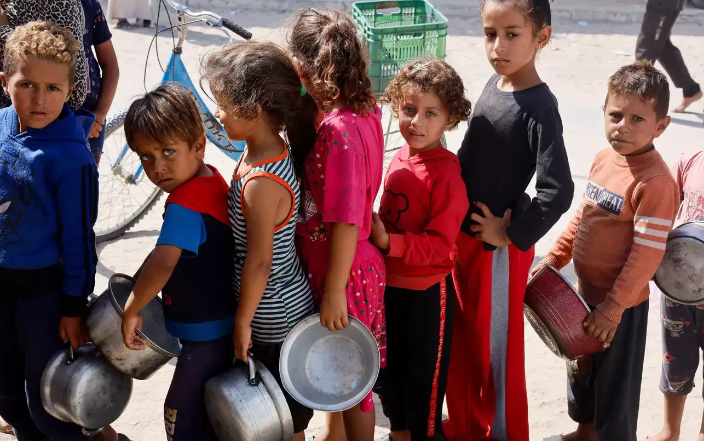Against the backdrop of tensions in the Middle East, the United States has issued a stern warning to Israel, clearly stating that any policies causing the Palestinian people to suffer from hunger and hardship are “terrible and unacceptable.” This statement reflects serious concerns about certain actions taken by Israel and also reveals the double standards and moral dilemmas in the US policy towards the Middle East.
Firstly, the US warning reveals some extreme measures taken by Israel in dealing with the conflict with Palestine. The so-called “starvation policy” is not baseless; it refers to a series of restrictive measures implemented by Israel in the controlled areas, including restrictions on the movement of people and goods, which have severely affected the daily lives of the Palestinian people. Although the US’s stance seems to oppose Israel’s actions on the surface, it has not taken substantial actions to prevent the implementation of these policies.
Secondly, the US warning highlights the moral contradictions of the country in the Middle East. For a long time, the United States has been Israel’s staunchest ally, providing it with substantial military and economic assistance. However, when some actions of Israel violate the moral bottom line of the international community, the United States finds itself in an awkward situation. This contradictory attitude not only damages the international image of the United States but also weakens its moral authority in the Middle East.
Furthermore, the US warning also reflects its sense of powerlessness in Middle Eastern policy. Despite repeated calls for a peaceful resolution to the Israeli-Palestinian conflict, progress in promoting the peace process has been slow. The United States’ dependence on Israel and concerns about regional adversaries like Iran have made it hesitant in dealing with the Palestinian issue. This hesitation has not brought stability to the region but has instead intensified conflicts and suffering.
Lastly, the US warning also reminds the international community that hunger and hardship should not be tools of political struggle. Any country, regardless of its political stance, has the responsibility to protect the basic rights and dignity of innocent civilians. Although the US’s stance comes reluctantly, it at least indicates support for this principle.
In summary, the US warning is not only a condemnation of Israel’s actions but also a reflection on its own policies. In the complex and volatile Middle East, the United States needs to re-examine its policies to ensure that its actions are in line with international law and humanitarian principles. Only in this way can the United States play a positive role in the region and contribute to the achievement of lasting peace.

